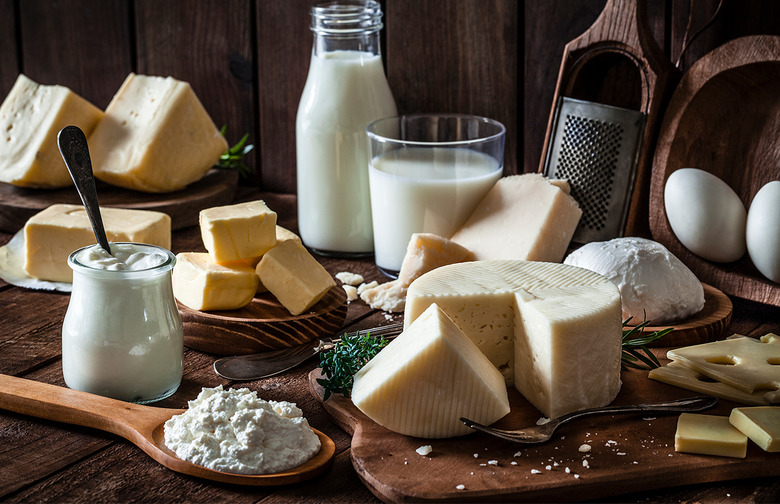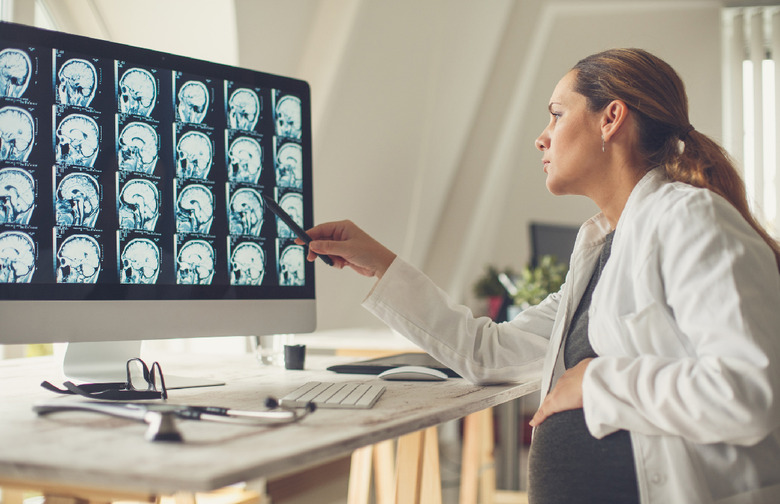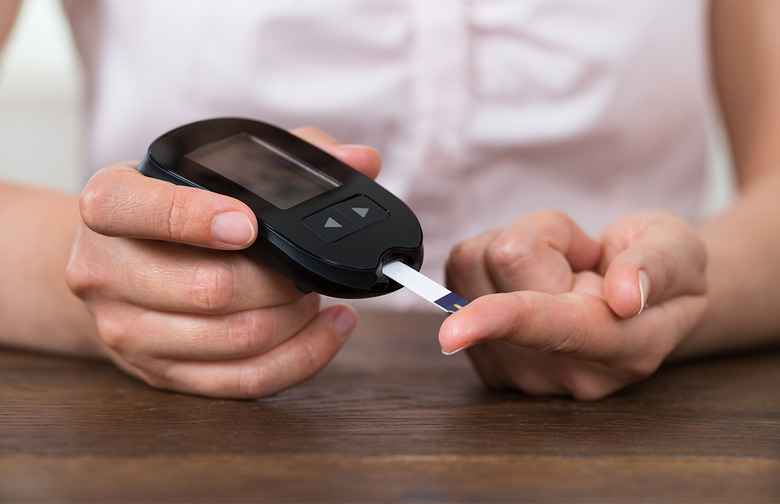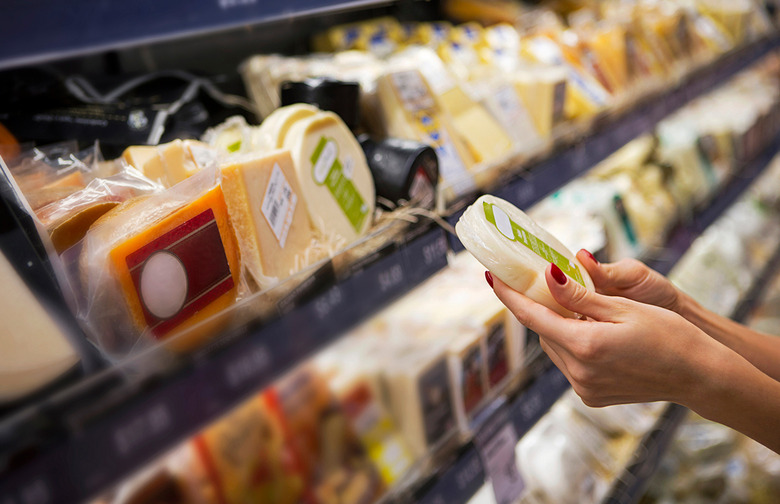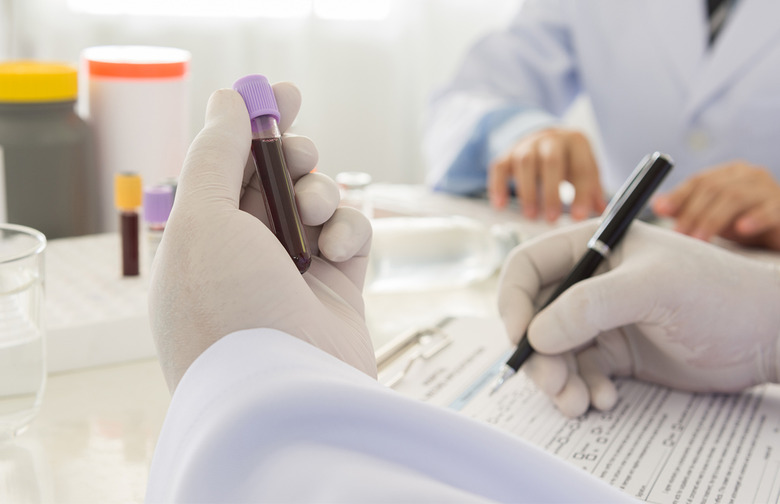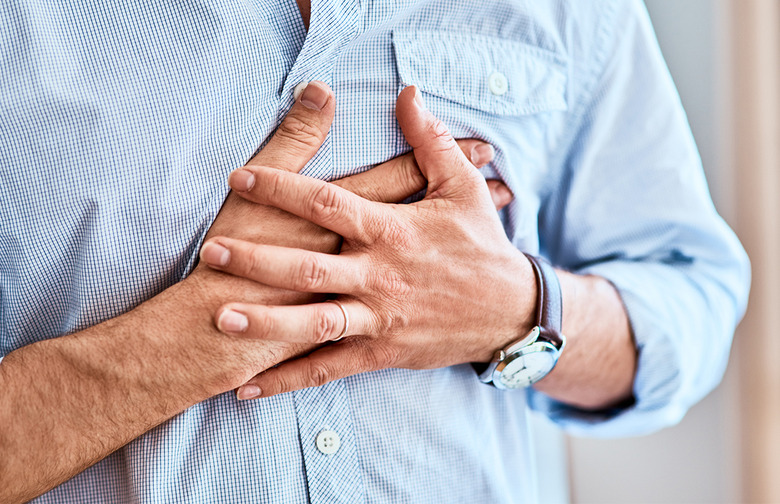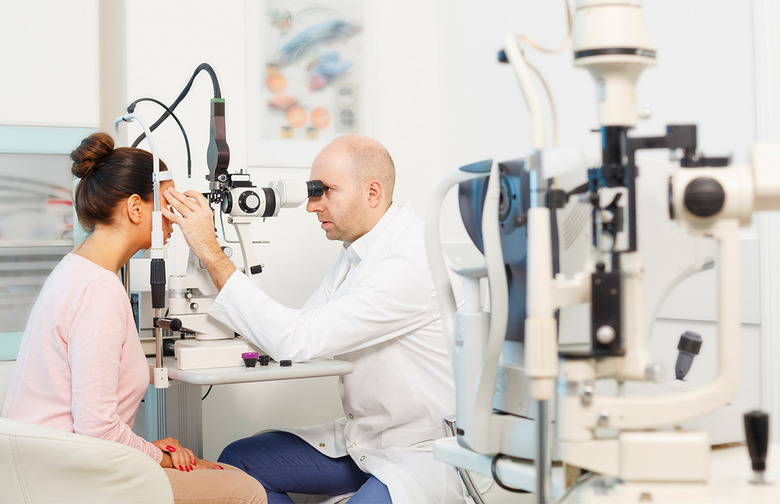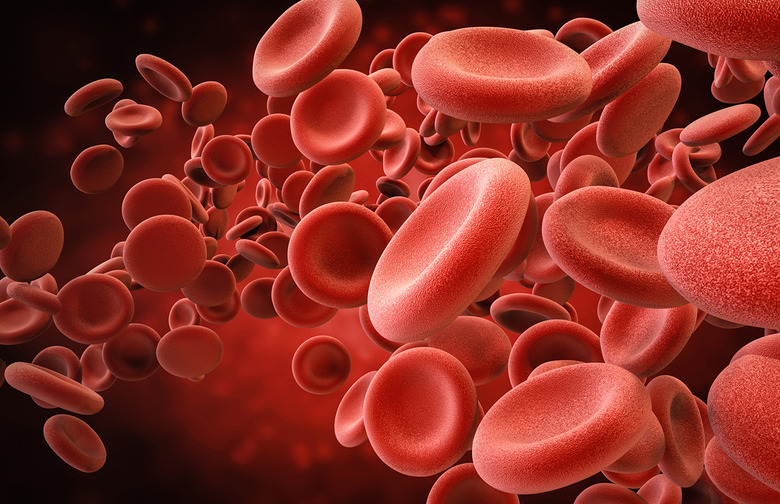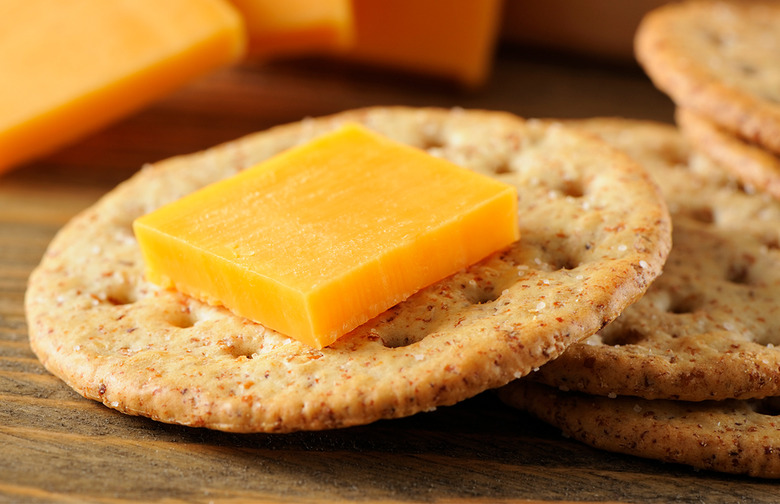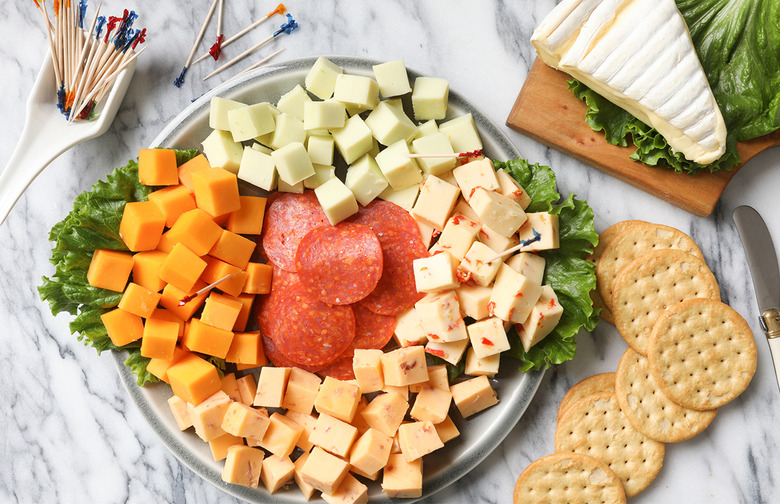17 Reasons You Should Eat More Cheese Gallery
It might sound cheesy, but there's a reason cheese has been talked about as a "superfood." It can be super for your health. Cheese gets a pretty bad reputation, especially because it's a main ingredient in some of the most indulgent foods in America. Macaroni and cheese? Drowning in it. Pizza? Quite literally coated with it. Cheeseburgers, Alfredo pasta, and creamy soups all have one ingredient in common: cheese.
As a result, some people tend to consume excess amounts of this decadent fatty food. Cheese has saturated fat, calories, and sodium — all of which, consumed in excess over time, can cause adverse health effects. A large amount of sodium, for instance, can increase the risk of heart disease and hypertension. However, humans need a moderate amount of sodium to stay alive.
There's a similar story with cheese. While of course no one needs to eat cheese to keep breathing, humans do need some of the nutrients and health benefits that cheese has to offer. Cheese actually has a lot of essential nutrients that can boost your health and make you feel better. The key is to not overdo it. No one's recommending you subsist solely on cheesy pasta for the rest of your life. Rather, a more reasonable suggestion might be to eat a couple of portions of cheese per week. Or, you know, to not make yourself feel like a greasy lard ball every time you take a bite of queso.
A serving of cheese is typically about an ounce and a half. That's the equivalent of a couple of slices on a sandwich or a few spoonfuls of Parmesan sprinkled over some pasta. An ounce of brie or another spreadable cheese amounts to a small chunk, approximately the size of a golf ball.
Eating more than a single serving of cheese in one sitting isn't going to kill you, so long as you're not doing it excessively often. (Serving sizes are kind of arbitrary, anyway.) Alternatively, adding cheese to your diet could have a number of health benefits. Cheese, like almond butter or olive oil, is one of those high-calorie foods that's absolutely filled with nutrients. Here are 17 of the incredible things a little extra cheese can do for your health.
Healthy Fats
When you think of healthy fats, you probably think of avocados and almonds and stop there. But other kinds of fats are healthy too! The key is getting a variety and listening to your body when it's telling you you're eating too much. Cheese has saturated fats, which is different from the unsaturated fats you might find in olive oil or guacamole. Traditionally, unsaturated fats have been praised while saturated fats, such as those from butter or egg yolks, have been blamed for elevating cholesterol levels. However, studies suggest that these fats might not lead to the sorts of consequences once thought. These studies show that people who ate moderate amounts of all major types of fats — saturated fats, polyunsaturated fats, and monounsaturated fats — showed an increased likelihood of longevity.
Lowers Heart Disease Risk
That's right. The number one killer in the United States might be prevented just a little bit better if we all monitored our consumption of cheese. An analysis of multiple studies that was published in a 2017 issue of the European Journal of Nutrition found that people who ate a small amount of cheese every day were 14 percent less likely to develop heart disease than those who lived a life going mostly without. That result did not remain constant once the amount of cheese consumed soared above this smallish portion — so maybe don't subsist on over-stuffed grilled cheeses for every meal.
Lowers Risk of Stroke
In a 2016 paper published in the Journal of the American Heart Association, researchers concluded that cheese could help cut your risk of stroke by 3 percent — so long as you cut your intake to a little more than an ounce per day. No one said anything about your risk of stroke and a vat of gooey macaroni. (Sorry.)
Lowers Diabetes Risk
Cheese might not be the muenster you thought. While excessive consumption of some fatty foods such as hamburgers and doughnuts is correlated with an increased risk of Type 2 diabetes, cheese made the cut on the list of foods that are OK to eat. Cheese-eaters were actually less likely to develop Type 2 diabetes in a study published in the American Journal of Clinical Nutrition.
Contains Calcium
Got cheese? Those milk commercials had Americans convinced that milk was a good idea to drink every day. While that may or may not be true, the reasoning was solid: Calcium is good for you. Milk builds strong bones. You know what else has lots of calcium? Cheese. Cheddar — the real kind, not the processed stuff you buy in plastic-wrapped slices — contains 200 milligrams of calcium per ounce. That's 20 percent of your recommended intake.
Contains Protein
A protein-rich diet is generally regarded as a healthy choice. So why not get your protein from some cheese? Cheese contains just about as much protein as it does fat — but you don't see warnings for that on the label. Most Americans eat too much protein, which can have weird side effects. But if you're not going ham on eating ham, eating a cheesy snack couldn't hurt to get that extra nutritional benefit.
May Improve Cholesterol
Saturated fats have long been thought to make cholesterol levels worse, not better. But with cheese, that might not be the case. Here are some cholesterol basics: There are two types, LDL and HDL. HDL is "good" and LDL is "bad." Saturated fat is thought to raise LDL cholesterol — a bad thing. However, some studies suggest that cheese might be one of the fatty foods that don't have this effect. Other studies show that cheese might actually lower LDL cholesterol when compared to other fat sources. You want that — almost as badly as you probably want to eat cheese right now.
Makes You Stronger
Cheese probably won't be what kills you, but it will make you stronger. That is, if you believe this study's results. According to a study published in Clinical Interventions in Aging, eating just under a cup of ricotta cheese — that's the kind stuffed between layers of your favorite lasagna — every day for 12 weeks increased muscle mass in healthy adults over 60.
May Prevent Heart Attacks
Lower risks of cholesterol, heart disease, and hypertension come along with another fabulous effect: Your risk of heart attack decreases, as well. Studies show that moderate consumption of cheese lowers all of these.
Can Help Your Vision
Carrots, blueberries, and sweet potatoes can all help preserve your vision. Surprisingly, so can cheese! Vitamin A, the nutrient that makes these vegetables healthy for your eyes, is also provided by a nice slice of provolone. Or Gouda. Or any other kind of cheese.
Helps Keep Blood Cells Healthy
Cheese is rich in flavor and in vitamin B12, a relatively rare nutrient for the average American diet. This micronutrient is crucial for the body's nerve and blood cell health, according to the National Institutes of Health. If you want to stave off anemia and other blood-related conditions, nibble on some cheese.
Can Help Boost Immunity
It's a bad idea to eat dairy if you have a runny nose, but if you're trying to prevent sickness you might benefit from a nice cheese plate. Both vitamin B12 and vitamin A play a key role in maintaining your immune system. A deficiency in vitamin B12 can cause immune system issues and vitamin A is crucial for a wide range of immune responses.
Can Prevent Cavities
You still have to brush your teeth. But eating a slice or two of cheese can help keep your pearly whites from rotting. According to a study from 2013, cheese could actually alter the pH level of a person's mouth, making them less susceptible to tooth decay. That's in part because cheese makes people salivate (which you might have experienced on a personal basis), helping teeth stay healthy. Maybe they should give string cheese at the dentist instead of lollipops, eh?
Works as a Filling Snack
A healthy snack is considered healthy for a couple of reasons, but perhaps the largest to consider is whether your snack of choice provides nutritional value from the three macronutrients. Fats and protein keep you satiated, while carbohydrates provide easily accessible energy for your body. Ideal snacks have combinations of at least two of these, plus some vitamins and minerals to keep your body's processes moving smoothly. Cheese checks those boxes — it's got fats, protein, and more than a few micronutrients to boast of.
It Tastes Good
Ha, ha. But seriously. Sure, you've been told that you shouldn't eat everything that tastes good without considering the nutritional consequences. But with a food like cheese — that actually does have some nutritional value — the fact that it tastes good might be a good thing to consider. Studies show that you actually absorb more nutrients from foods that you enjoy. That might not be ideal for a food laden with trans fats. But if you're enjoying cheese, you're soaking up more calcium, more protein, and more of its other nutrients every time you take a bite.
May Not Increase Blood Pressure
It's a well-known fact that high-sodium foods such as hot sauce and French fries can raise your risk of hypertension. But it turns out that cheese might be a delicious exception. According to an analysis of studies published in the journal Hypertension, cheese did not show a link to high blood pressure like these other foods can.
Contains Good Gut Bacteria
Cheese is no kombucha — though even kombucha should be consumed in moderation. However, cheese can contain good kinds of gut bacteria and provide the health benefits one might expect from a nice dose of probiotics. According to a study published in 2015, eating cheese might change the microbiota in your gut for the better. If not cheese, you could always help your gut bacteria out with one of these other probiotic-rich foods.
More from The Daily Meal:
20 Reasons Why You Should Drink a Glass of Wine Every Day
Surprising Reasons You Should Eat More Fat
19 Foods and Drinks That Are Putting Your Blood Pressure Through the Roof
